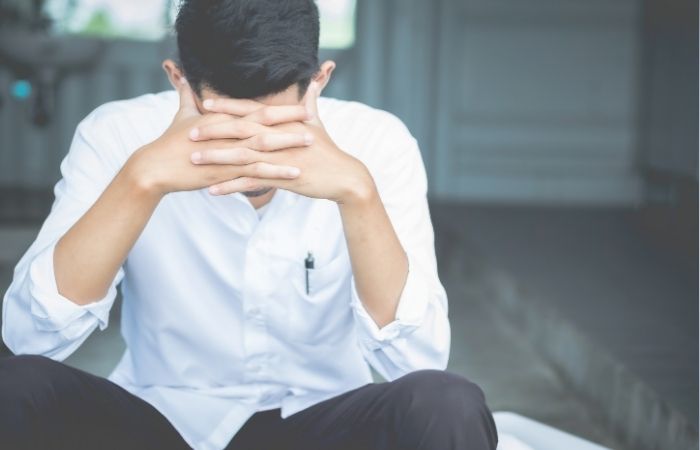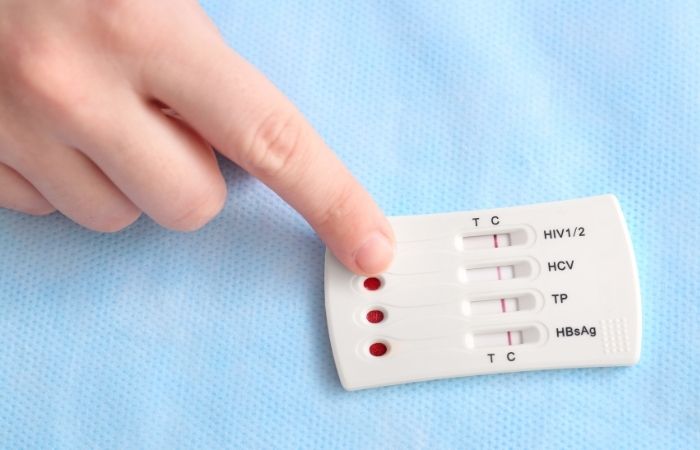I Tested Too Early for HIV, Here’s What Happened
What a Positive At-Home STD Test Means and How to Deal With It
A positive result in an at-home STD testing may indicate several problems of different natures, concerning the tested and suspected disease in question. Remember that these are preliminary data, and confirmation may be necessary through other tests. A few things to keep in mind:
Accuracy of Results
Testing for STDs at home produces highly reliable results, though not perfect. The inaccuracies in testing may result in the production of false positive results due to flawed procedures.
Some common STDs tested for with at-home tests include chlamydia, gonorrhea, syphilis, and HIV. Each of these conditions may require a different measure of follow-up.
Emotional Response
It is absolutely all right to be shocked or worried. Take a deep breath and remind yourself that the sooner the problem was found out, the quicker you will be treated.

Things to Do After Receiving a Positive Home STD Test Result
So, the test results came back positive. What to do now? For the next step, here is a step by step guide:
Confirm the Results
Schedule an appointment with your doctor or to confirm the results with a follow-up test at a local facility. Most doctors will conduct a more sensitive test for confirmation that it is true.
Inform Your Partners
Inform your sexual partners of your status so that they may get tested and treated if need be. Many clinics are offering anonymous partner notification services to make it easy.
Seek Support
For treatment, some conditions require simple courses of antibiotics - to treat chlamydia, for instance, while others require more elaborate long-term management plans, as in the case of HIV.
Take Steps in Prevention
The use of protection, such as condoms, and testing frequently are ways to prevent oneself from acquiring sexually transmitted infections.
Order Now $129.00 $343.00 Check Your STD Status in Minutes
Test at Home with Remedium
7-in-1 STD Test Kit




For all 7 tests
Possible Issues Faced and Remedies
Anxiety and Stigma
Judging attitudes about sexually transmitted diseases create a significant barrier. Shame and, perhaps, reluctance to seek treatment are natural feelings to experience. Remember that sexually transmitted diseases are just diseases - not moral failings. A key weapon against stigma is informing yourself and others.
Finding Credible Medical Advice
Have no idea what to do? Consult a good medical professional or consult websites like the CDC. Do not rely entirely on unconfirmed information or online discussion groups.
Medical Expenses
For others, the cost of further testing or treatment may be a barrier. Go online and search for free or low-cost STD testing clinics in your area, or check to see if any of the testing or treatment will be covered by your insurance.
About Why Early Detection Is Important
- Prevent complications with early detection of sexually transmitted infections
- Prevent infertility and chronic pain from occurring.
- Reduce the risk that you are spreading the infection to others.
- Lower treatment expenses, while increasing the effectiveness of said treatment.
An easy way to detect such problems early can be done through the usage of a home STD kit like those available here.

Follow-Up Testing and Ongoing Care
Please follow your doctor's recommendations regarding therapy and retesting, once you have confirmed results. In many infections additional testing may be necessary after the initial round to verify an infection has cleaned up. In addition:
- Having multiple sex partners is one good reason to consider frequent testing.
- Protect yourself from possible infections by discussing vaccinations-such as the HPV vaccine, for example.
Encouraging Open Discussions
The more openly people discuss sexuality, the less shame and stigma will be associated with it, which can lead to healthier relationships; while it may be hard to bring up the subject of STDs, here's a few tips to get started:
- When talking with partners, be direct but still be sensitive. Use "I" words, such as "I recently tested positive and wanted to share this with you so we can both stay healthy."
- To help make conversations about sexual health a little more routine, share your story with friends and family.

FAQs
1.- Do home STD testing really work?
When taken correctly, home tests for STDs are indeed very accurate. Confirmation tests by a healthcare professional are advisable, though.
2.- What must I do if the test at home shows up as positive?
Follow-up with testing, notify your partners, and begin treatment that your doctor may advise.
3.- Can all the types of STDs be detected with at-home tests?
Yes, they usually test for HIV, chlamydia, gonorrhea, and syphilis. You will get more specific information from the kit that you use.
4.- How long after possible exposure should I test?
It depends on the disease. For example, with chlamydia, you can find out correctly one to two weeks after infection, but for others, such as HIV, it takes three months before you will get an accurate result.
5.- Should I have my blood checked again?
Confirmatory testing is necessary because it confirms that your results are valid and your treatment is effective.
6.- If I test positive, how should I notify my partners?
Be honest but sensitive. If possible, protect your anonymity. For this reason, many clinics and other health centers offer partner notification services.
7.- I tested positive; is it still okay for me to have sex?
To help prevent the spread of the infection, avoid sexual activity until you have finished treatment and your doctor says it is okay.
8.- What happens if I don't get treatment for an STD?
If left untreated, sexually transmitted diseases can cause serious health problems including infertility, chronic pain, and increased risk for HIV.
9.- Can I get treatment if I can't pay?
In fact, there are many clinics and organizations that offer free or at extremely minimal cost testing and treatment options. You just have to contact your local health department for help.
10.- Where can I find reliable home STD testing kits?
Visit our range of discreet, accurate, and easy-to-use STD testing kits here.
Take Charge!
Taking control of your health starts with awareness and action. If you’ve tested positive with an at-home STD kit, confirm your results, seek treatment, and prioritize prevention.
Sources
1.- Ontario: Sexually Transmitted Infections Tests
2.- Willow Women's Center: What Happens If I Test Positive for an STD










